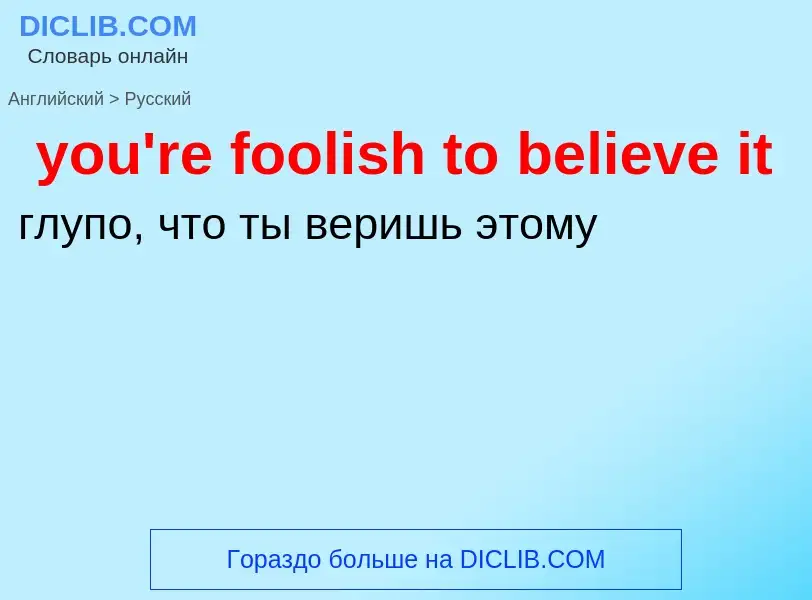Traducción y análisis de palabras por inteligencia artificial ChatGPT
En esta página puede obtener un análisis detallado de una palabra o frase, producido utilizando la mejor tecnología de inteligencia artificial hasta la fecha:
- cómo se usa la palabra
- frecuencia de uso
- se utiliza con más frecuencia en el habla oral o escrita
- opciones de traducción
- ejemplos de uso (varias frases con traducción)
- etimología
you're foolish to believe it - traducción al ruso
[bi'li:v]
глагол
общая лексика
верить
доверять
(in) верить (в кого-л., во что-л.)
возлагать надежды (на что-л., кого-л.)
думать
полагать
считать
иметь какое-л. мнение
придавать большое значение
думать, полагать
да (в ответе)
религия
веровать
верить (in
[редк.] on)
Definición
Wikipedia
"The Will to Believe" is a lecture by William James, first published in 1896, which defends, in certain cases, the adoption of a belief without prior evidence of its truth. In particular, James is concerned in this lecture about defending the rationality of religious faith even lacking sufficient evidence of religious truth. James states in his introduction: "I have brought with me tonight ... an essay in justification of faith, a defense of our right to adopt a believing attitude in religious matters, in spite of the fact that our merely logical intellect may not have been coerced. 'The Will to Believe,' accordingly, is the title of my paper."
James' central argument in "The Will to Believe" hinges on the idea that access to the evidence for whether certain beliefs are true depends crucially upon first adopting those beliefs without evidence. As an example, James argues that it can be rational to have unsupported faith in one's own ability to accomplish tasks that require confidence. Importantly, James points out that this is the case even for pursuing scientific inquiry. James then argues that like belief in one's own ability to accomplish a difficult task, religious faith can also be rational even if one at the time lacks evidence for the truth of one's religious belief.


![A Ripley's Believe It or Not! designed [[Paddington Bear]] statue in London, one of fifty auctioned for the [[NSPCC]] A Ripley's Believe It or Not! designed [[Paddington Bear]] statue in London, one of fifty auctioned for the [[NSPCC]]](https://commons.wikimedia.org/wiki/Special:FilePath/Paddington Trail - Paddington The Explorer.jpg?width=200)



